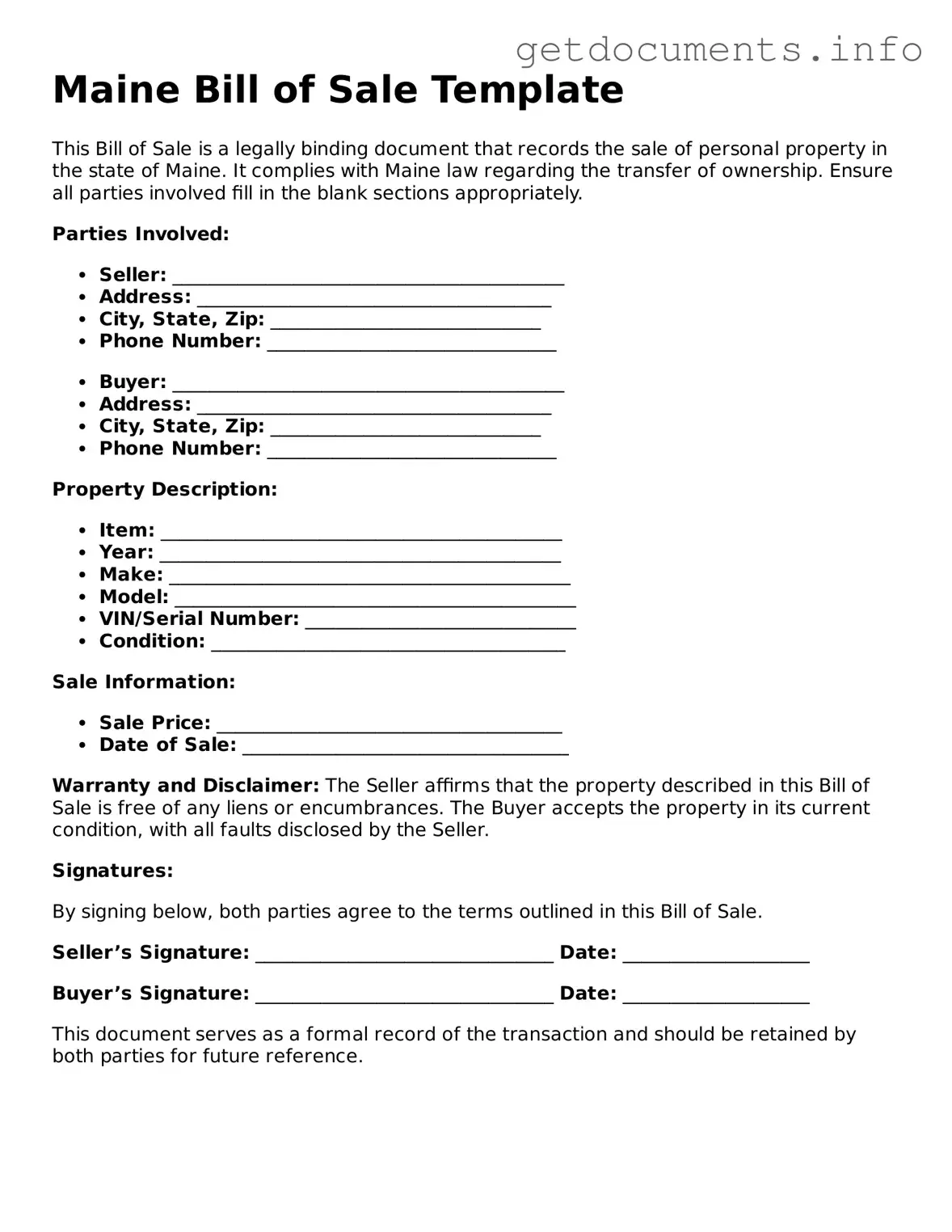Free Bill of Sale Template for Maine
The Maine Bill of Sale form is a legal document that records the transfer of ownership of personal property from one person to another. This form is essential for ensuring that both the buyer and seller have a clear understanding of the transaction. To make the process easier, fill out the form by clicking the button below.
Access Bill of Sale Editor

Free Bill of Sale Template for Maine
Access Bill of Sale Editor
Got places to be? Complete the form fast
Fill out Bill of Sale online and avoid printing or scanning.
Access Bill of Sale Editor
or
⇩ PDF File
